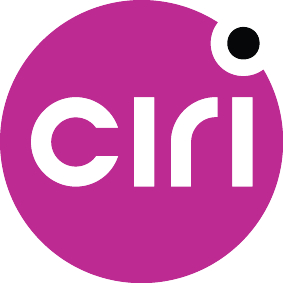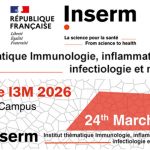 Immunobiology of Viral Infections
Immunobiology of Viral Infections
International Center for Infectiology Research – CIRI
INSERM U1111, CNRS UMR5308, University Lyon I, ENS de Lyon, France
Web site: https://ciri.ens-lyon.fr/teams/IbIV
Post-doctoral position in Immuno-Virology
A two-year post-doctoral position is currently available in our laboratory, to study immunobiology of Nipah virus infection in its natural host and develop novel prophylactic and therapeutic anti-viral approaches. This zoonotic virus, ranked by WHO among top 8 emerging pathogens likely to cause major epidemics, provokes severe disease with high fatality rates, without any existing licensed prevention and treatment, representing thus an ongoing threat to human health globally, and providing an important focus for further research.
Applicants should have a doctoral degree and a strong and productive experience in virology, and/or immunology, with the background in cell and molecular biology, and excellent technical, organization and communication skills. Experience in animal experimentation is beneficial. A strong interest in new emerging viruses, the ability to perform creative and independent research, and high level of motivation is expected. Salary range will depend on past experience, according to INSERM scales.
The laboratory is hosted within the CIRI, the institute composed of 23 teams and dedicated to multi-disciplinary research in infectious diseases in Lyon (address: 21 Avenue Tony Garnier, 69007 Lyon, France). The CIRI provides an exciting and multi-cultural environment to carry out research, with topics that range from virology, bacteriology to immunology. The Institute offers state-of-the-art facilities that will be used to carry out the project. CIRI is in close proximity to BSL4 laboratory and also nearby the downtown Lyon, second largest urban area in France.
Please, send your application with the complete CV and contact details for 2 referees by mail to: Branka HORVAT branka.horvat@inserm.fr Closing date for application: 30 October 2021.
Selected publications of the host laboratory:
Iampietro M., Dumont C., Mathieu C., Spanier J., Robert J., Charpenay A., Dupichaud S., Dhondt K., Aurine N., Pelissier R., Ferren M., Mély S., Gerlier D., Kalinke U and Horvat B.: Activation of cGAS/STING pathway upon paramyxovirus infection, iScience, May 7;24(6):102519, 2021, doi:https://doi.org/10.1016/j.isci.2021.102519
Gaudino M., Aurine N., Dumont C., Fouret J., Ferren M., Mathieu C., Reynard O., Volchkov V.E., Legras-Lachuer C., Georges-Courbot M.C., Horvat B.: High pathogenicity of Nipah virus from Pteropus lylei fruit bats, Cambodia. Emerg. Infect. Dis., 26(1):104-113, 2020, doi: 10.3201/eid2601.191284
Iampietro M., Aurine N., Dhondt K.P., Dumont C., Pelissier R., Spanier J., Vallve A., Raoul H., Kalinke U., Horvat B.: MAVS and MyD88 – mediated signaling restrains lethal Nipah virus infection in mice. J. Infect. Diseas 221(S4): S401–S406, 2020 doi: 10.1093/infdis/jiz602
Guillaume-Vasselin V., Lemaitre L., Dhondt K.P., Tedeschi L, Poulard A., Charreyre C. and Horvat B.: Protection from Hendra virus infection with Canarypox recombinant vaccine. Nature PJ Vaccines, 1: 16003, 2016.
Mathieu C., Dhondt K.P., Châlons M., Mély S., Raoul H., Negre D., Cosset F.L., Gerlier D., Vivès R.R. and Horvat B.: Heparan Sulfate-dependent enhancement of Henipavirus infection. mBio, 6(2): e02427-14, 2015.




